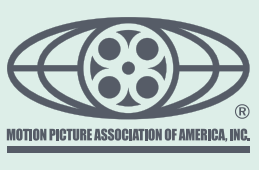The Internet Corporation for Assigned Names and Numbers (ICANN) is the main oversight body for the Internet’s global domain name system.
Among other things, ICANN develops policies for accredited registrars to prevent abuse and illegal use of domain names.
What not many people know, however, is that the MPAA is actively involved in shaping these policies.
As a member of several ICANN stakeholder groups the lobby outfit is keeping a close eye on the movie industry’s interests. Most of these efforts are directed against pirate sites.
For example, in ICANN’s most recent registrar agreements it’s clearly stated that domain names should not be used for copyright infringement.
As the MPAA’s Alex Deacon explains, these agreements “contain new obligations for ICANN’s contract partners to promptly investigate and respond to use of domain names for illegal and abusive activities, including those related to IP infringement.”
The MPAA hopes that “the community” will take these new obligations seriously and make sure that they are enforced.
“As with any new contractual obligations, it is essential that the community as a whole be on the same page on how these obligations are interpreted and ultimately enforced,” Deacon writes.
The MPAA’s involvement with ICANN’s policy making is a sensitive subject and Deacon’s comments in public are carefully worded. However, the MPAA is getting involved with ICANN for a reason.
Thanks to internal documents that were made public in the Sony leak, we know that the MPAA ideally wants to adopt “procedures for broad-based termination of pirate sites.”
While admitting that such a major change is “unlikely,” the MPAA notes that “seeking to make policy changes through ICANN meetings” remains an important strategy.
Besides influencing future policy, the MPAA also sees an option to use the existing agreements to convince registrars to take action against domain names that are used by “pirate” sites.
“The recent ICANN changes to the registrar agreement for new gTLDs apparently provide non-judicial ‘notice’ opportunities that may suggest new strategies requiring fewer resources. We need to explore these further,” the internal MPAA document reveals.
Whether registrars are likely to comply with voluntary takedown requests has yet to be seen though. Previously, City of London Police didn’t have much luck with a similar strategy.







